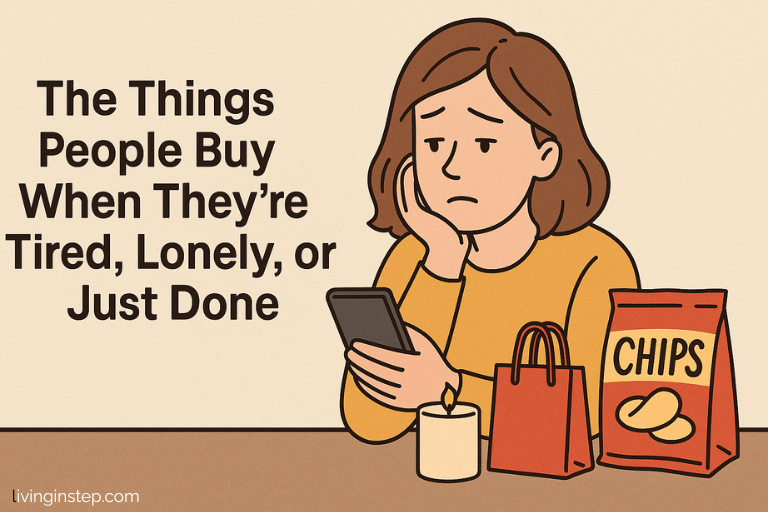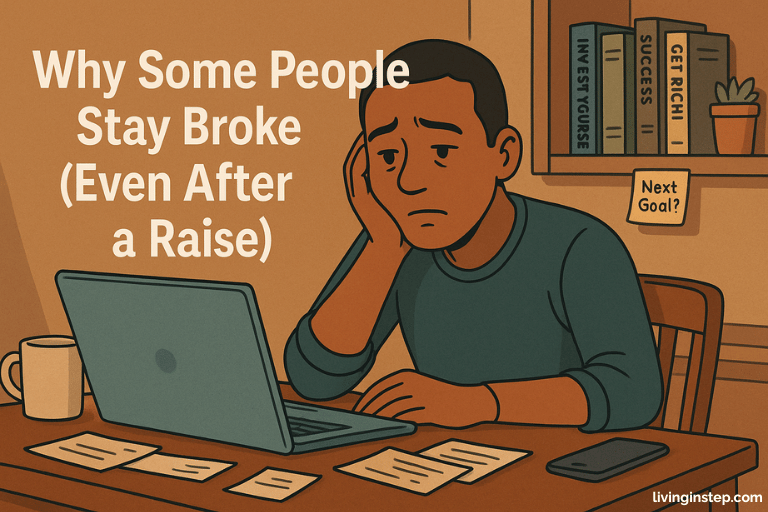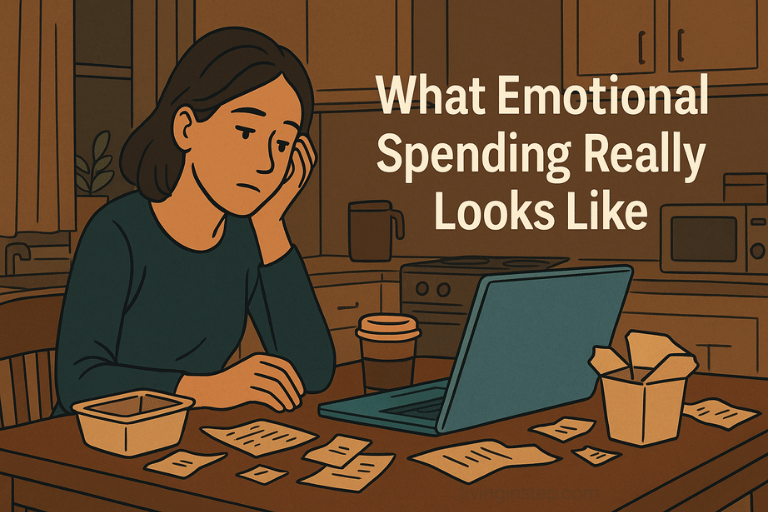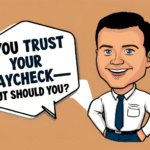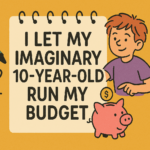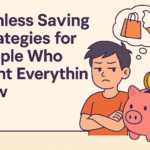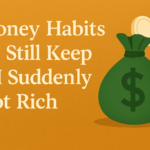Some days, spending has nothing to do with budgeting.
It’s not about planning.
Or goals.
Or getting ahead.
It’s about being tired. Or lonely. Or just completely done.
And in those moments, people buy things they don’t even really want.
Not because they’re being irresponsible.
Because they need something to change—and this is what’s available.
When you’re tired, spending becomes a shortcut
You’re not thinking long-term when you’re running on fumes.
You’re just trying to get through the next couple of hours without snapping.
So you buy takeout.
You pay for delivery again even though you said you wouldn’t.
You grab something small at checkout, just because it’s there.
These don’t feel like big decisions.
They feel like relief.
You know you could’ve waited.
You know it adds up.
But it’s the end of the day, and your brain is done negotiating.
Lonely spending is quieter
It doesn’t look dramatic.
You’re not throwing money around.
But you are filling a gap.
You scroll a bit longer than usual.
You add something to the cart.
A candle. A skincare product. Something soft. Something nice.
You tell yourself it’s a treat.
And maybe it is.
But sometimes, it’s also something else.
A stand-in for care. A placeholder for connection.
You don’t always notice it until later—when the box arrives and doesn’t feel quite how you thought it would.
And then there’s the spending that comes from feeling done
Not tired. Not emotional. Just… done.
That’s when people buy things out of defiance.
They’ve spent all week being careful.
They’ve said no to things they wanted.
They’ve stretched meals, canceled plans, stayed on track.
Then something hits—another bill, another hard day—and they snap.
The spend isn’t about the item.
It’s about reclaiming some kind of freedom.
They know it’s not smart. They do it anyway.
Not to blow up the budget, but because they’re tired of living by it.
These aren’t mistakes—they’re signals
Spending like this doesn’t mean someone’s bad with money.
It means something else is wearing them down.
That’s what emotional spending really is.
It’s not wild shopping sprees or careless habits.
It’s normal people buying small things because they’re carrying too much.
Recognizing it matters.
Not to feel ashamed. But to see the pattern before it gets louder.
Because once you notice why you’re spending, it gets easier to pause.
Not every time. But more often than before.
You don’t have to justify every purchase
Sometimes you do need a break.
Sometimes you do need a small reward.
But when it keeps happening—and it’s not really helping—it’s worth asking what’s going on underneath.
Not to guilt yourself. Just to be honest about it.
Money and emotions don’t live in separate categories.
And most budgets don’t fail because of math.
They fail because people are human.
So if spending shows up when you’re drained or disconnected, that doesn’t make you reckless.
It makes you honest.
And the more honest you can be with yourself about what’s going on—the easier it gets to stop using money to fix what it was never meant to.
Note: This content is for entertainment purposes only and is not financial advice. Please consult a qualified financial advisor for guidance specific to your situation.

